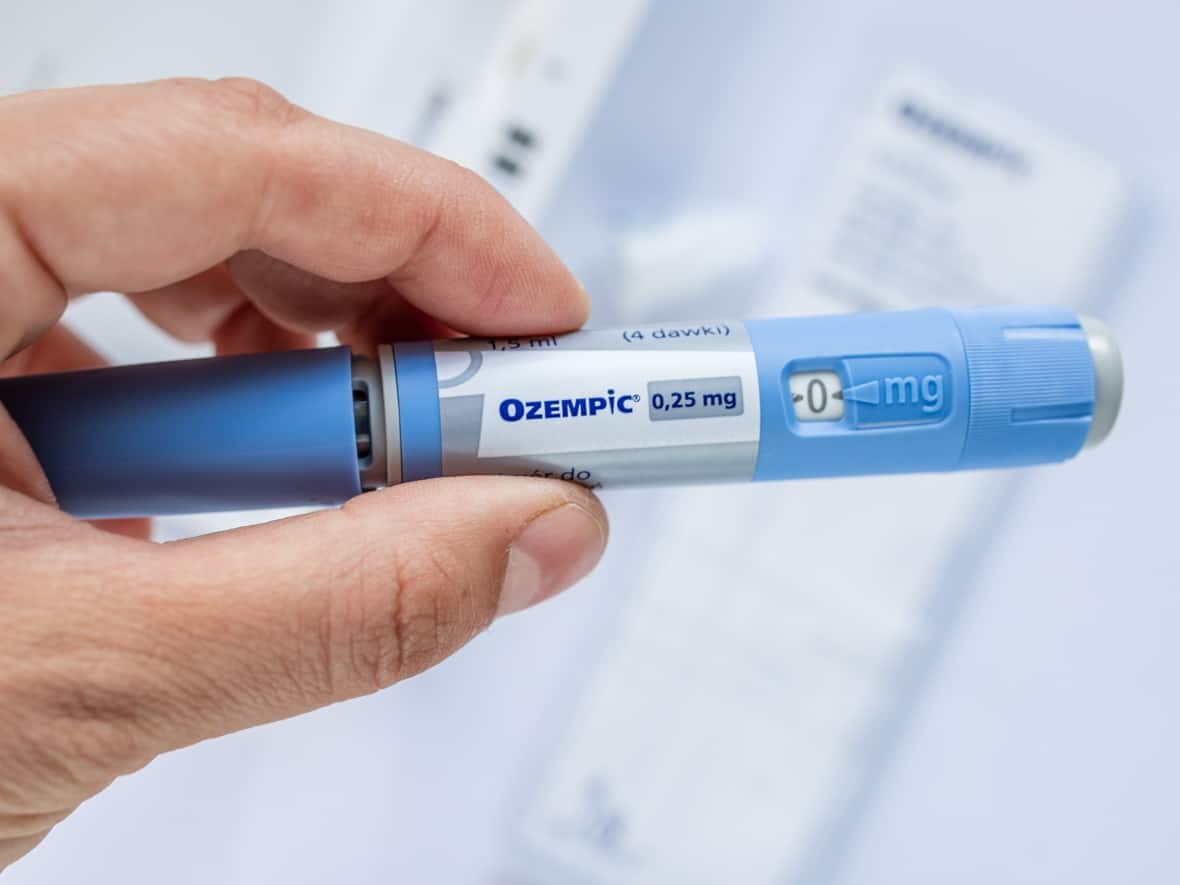What is Ozempic and why is B.C. cracking down on sales of the drug to Americans?

Thousands of people in the United States have been getting their Ozempic this year from pharmacies in British Columbia, prompting the province to announce a restriction on sales to avoid a local shortage of the diabetes medication.
At a news conference Tuesday, Health Minister Adrian Dix detailed the results of an internal ministry investigation into the cross-border issue, saying that nearly one in five Ozempic prescriptions in B.C. went to American residents in the first two months of the year.
The vast majority of those prescriptions were issued in Nova Scotia and fulfilled by two Metro Vancouver pharmacies, the investigation found.
Here's how buyers from the U.S. are turning to pharmacies north of the border — and why.
What is Ozempic?
Ozempic is the brand name of an injectable drug prescribed mainly to treat Type 2 diabetes.
Bernie Garrett, a professor in the school of nursing at the University of British Columbia (UBC), said it's also effective for weight loss — albeit with significant risks attached, including thyroid cancer as a possible side-effect.
B.C. Diabetes has also noted the potential for weight loss.
Why is there so much demand?
Buyers who might not have diabetes have been seeking out the medication because celebrities, advertisements and people on social media have hyped up its potential for weight loss.
The drug is not approved as a weight loss treatment in Canada, but Dix said demand from the U.S. is affecting supply across the country.
Patients in the U.S. are turning to Canadian pharmacies to buy the drugs for cheap. In B.C., one month of Ozempic costs around $300 — a third of some American prices.
Prescription drugs can cost less in Canada because a federal agency sets the maximum price a company can charge for patented drugs. In the U.S., drug companies are allowed to decide.
WATCH | B.C. to restrict Ozempic sales under rising demand from U.S.:
Dozens of users on TikTok and Reddit trade information about accessing the medication in Canada. Some say they can't afford the drug in the U.S. without insurance, or that their insurance won't cover the drug without a diabetes diagnosis.
People who have received the drug from Canadian pharmacies say the medication is shipped in a matter of weeks, sealed in a package with ice packs.
How are people in the U.S. getting Ozempic from Canada?
In the first two months of the year, upwards of 15 per cent of Ozempic prescriptions in B.C. were being filled for American patients.
By comparison, less than half a per cent of other drugs in B.C. were prescribed to non-residents.
Americans can also cross the border to buy prescription drugs in Canada, and this has become more common in recent years. Americans doing so still need a prescription from a physician licensed in Canada to buy Canadian pharmaceuticals.
They can visit a walk-in clinic and pay out-of-pocket for the visit. Some Americans living near the border might have a family doctor in Canada.
Is it legal for pharmacists to mail Ozempic out of the country?
As long as the prescription is written or co-signed by a Canadian prescriber, it's legal for a pharmacist to fill that prescription and send it to the patient.
Sending medication by mail isn't uncommon if, for example, the patient is a Canadian snowbird living in the U.S. part time.
Still, pharmacists have the right to refuse prescriptions that come across their counters.
"If you know that it's for an off-label use ... and if it's not for a patient that you know, as a pharmacist myself, I would have second thoughts about whether this is the right treatment decision for this supply of a drug that is intended for British Columbians," said Barbara Gobis, a pharmacist and the director of the pharmacist clinic at UBC.
WATCH | American demand for B.C. stock of Ozempic is 'concerning,' minister says:
If it's legal, why is the province restricting sales?
Dix said the province wants to preserve its stock of Ozempic to be sure British Columbians with Type 2 diabetes can access the drug. The province isn't currently experiencing a shortage, but Dix said "the trend is in that direction."
Just this year, the provincial government expanded access to Ozempic for British Columbians through PharmaCare's special authority program.
Dix said Tuesday the province doesn't have enough stock to help British Columbians and "satisfy the American market."
Dix said he's asking provincial and federal regulators to look into two Metro Vancouver pharmacies and the Nova Scotia practitioner responsible for thousands of Ozempic prescriptions issued to Americans.
He said he wants a federal government review under the Food and Drugs Act "to address the concerning number of Ozempic prescriptions emanating from practitioners in one province.''
He said he's asking the College of Pharmacists of British Columbia to ensure pharmacies are following drug dispensing rules because of the "unusually high'' number of prescriptions being filled for non-Canadian residents.
Provincial and federal regulators need to work together to protect the supply of in-demand medications and avoid "mass exportation'' of a drug needed by Canadian patients, Dix said.
"It's a national problem. It's a problem across the 10 provinces. This is a drug that's in demand. There's significant off-label use that we all know about related to weight loss,'' he said. "We need to take some action.''
Have there been shortages of Ozempic elsewhere?
Demand for Ozempic has driven shortages in the United States.
Canada experienced a temporary national shortage of the drug's one-milligram format in March, but Health Canada and the drug's manufacturer told CBC News the issue was resolved last week.


